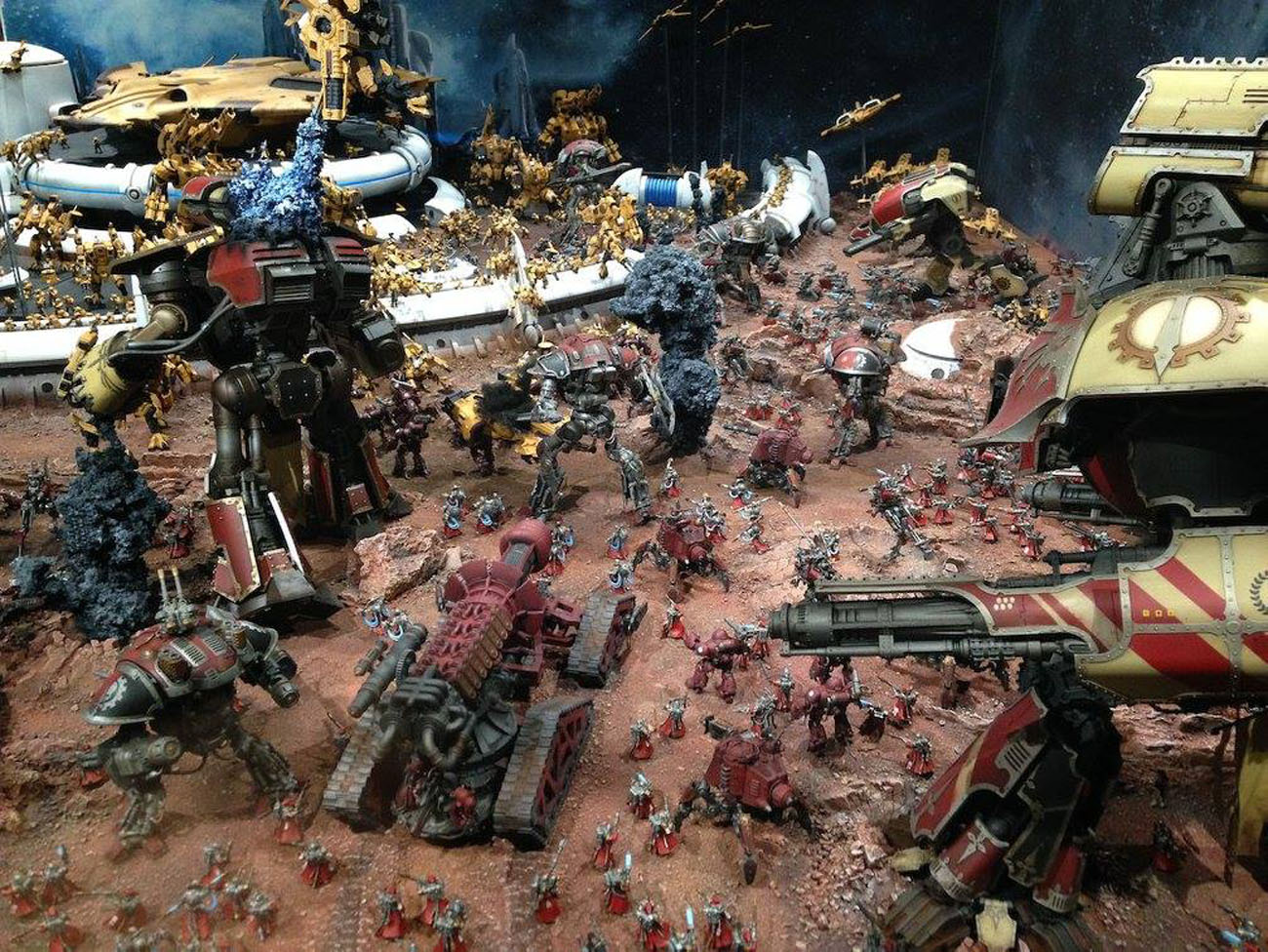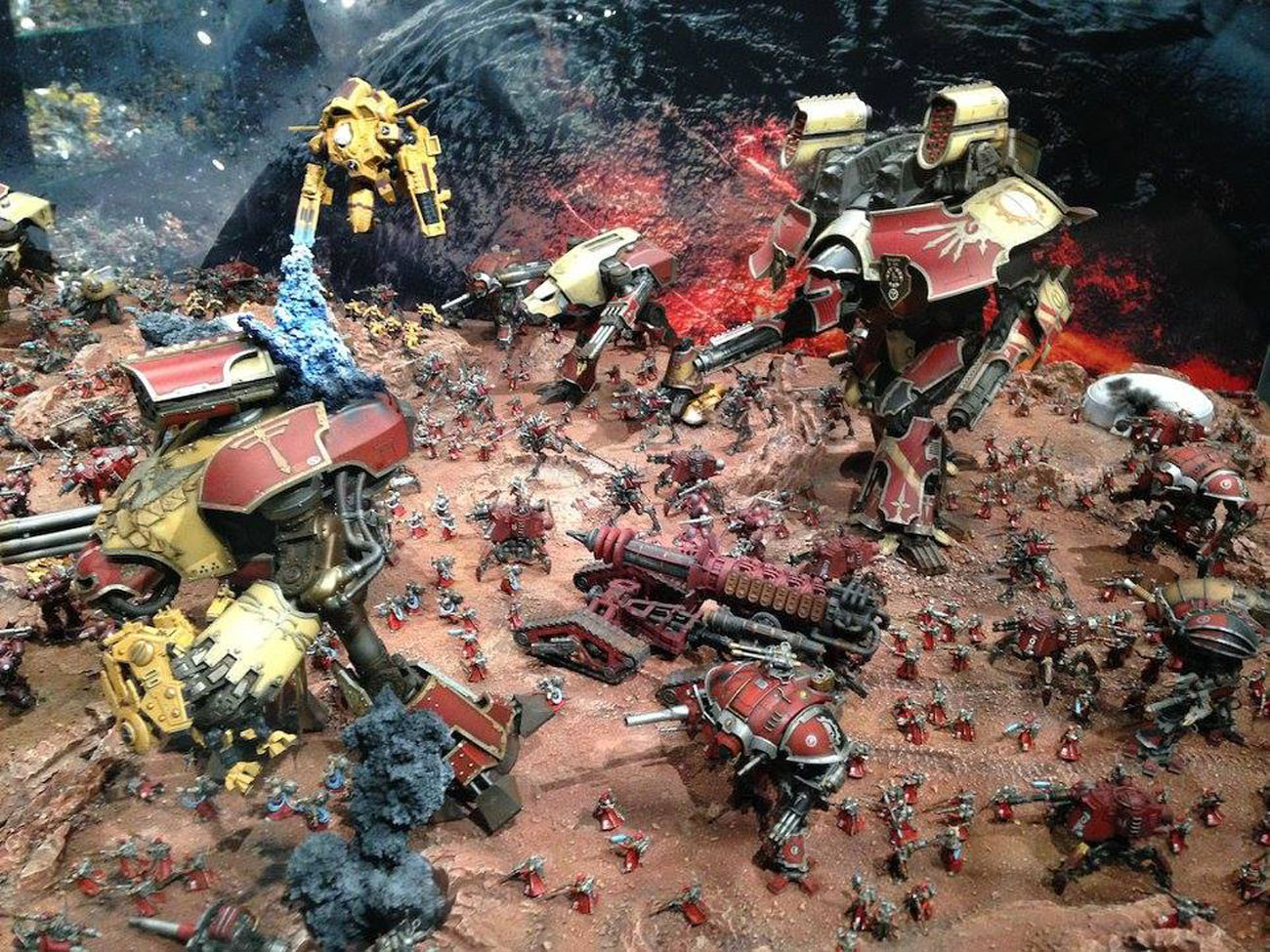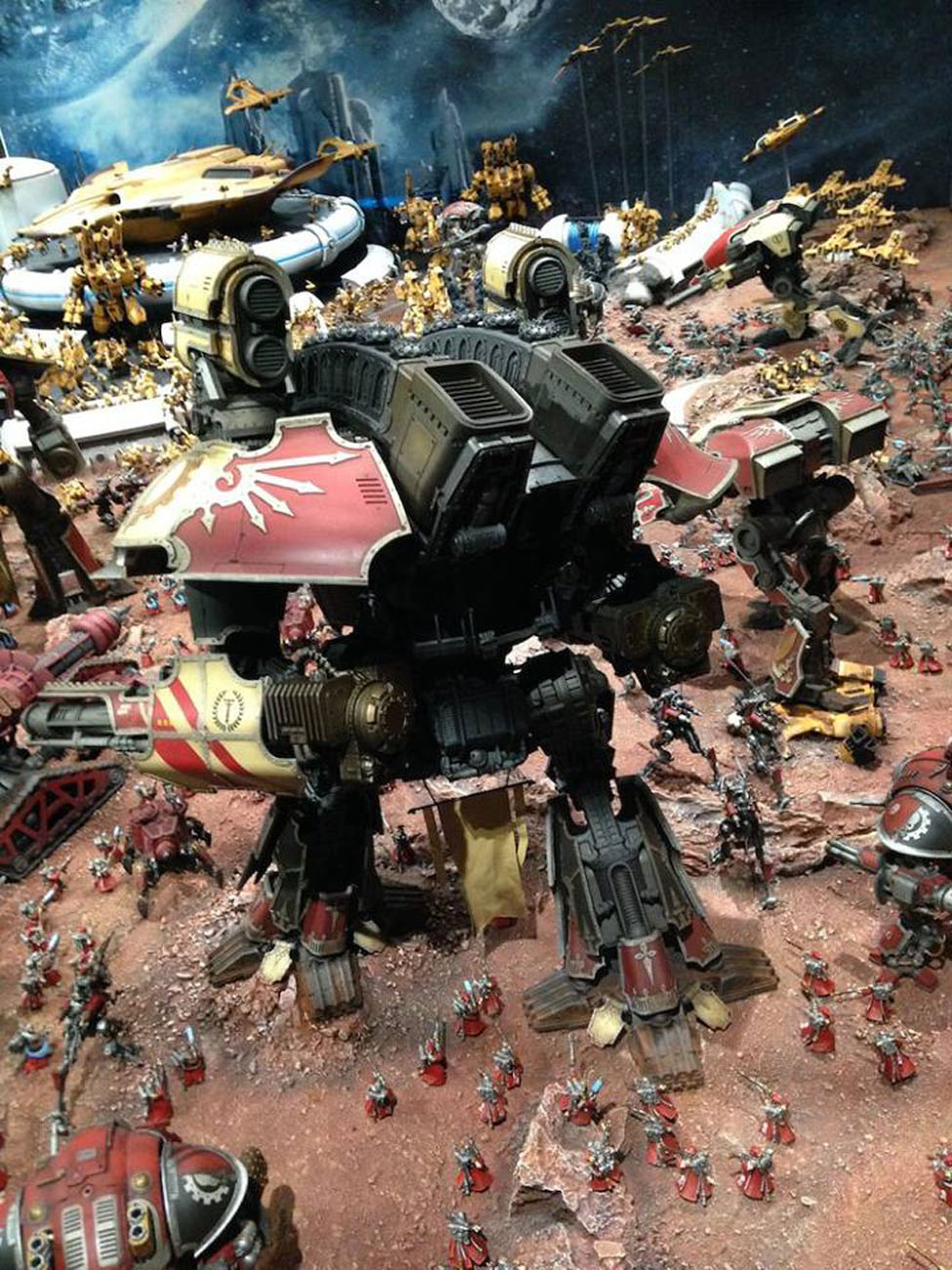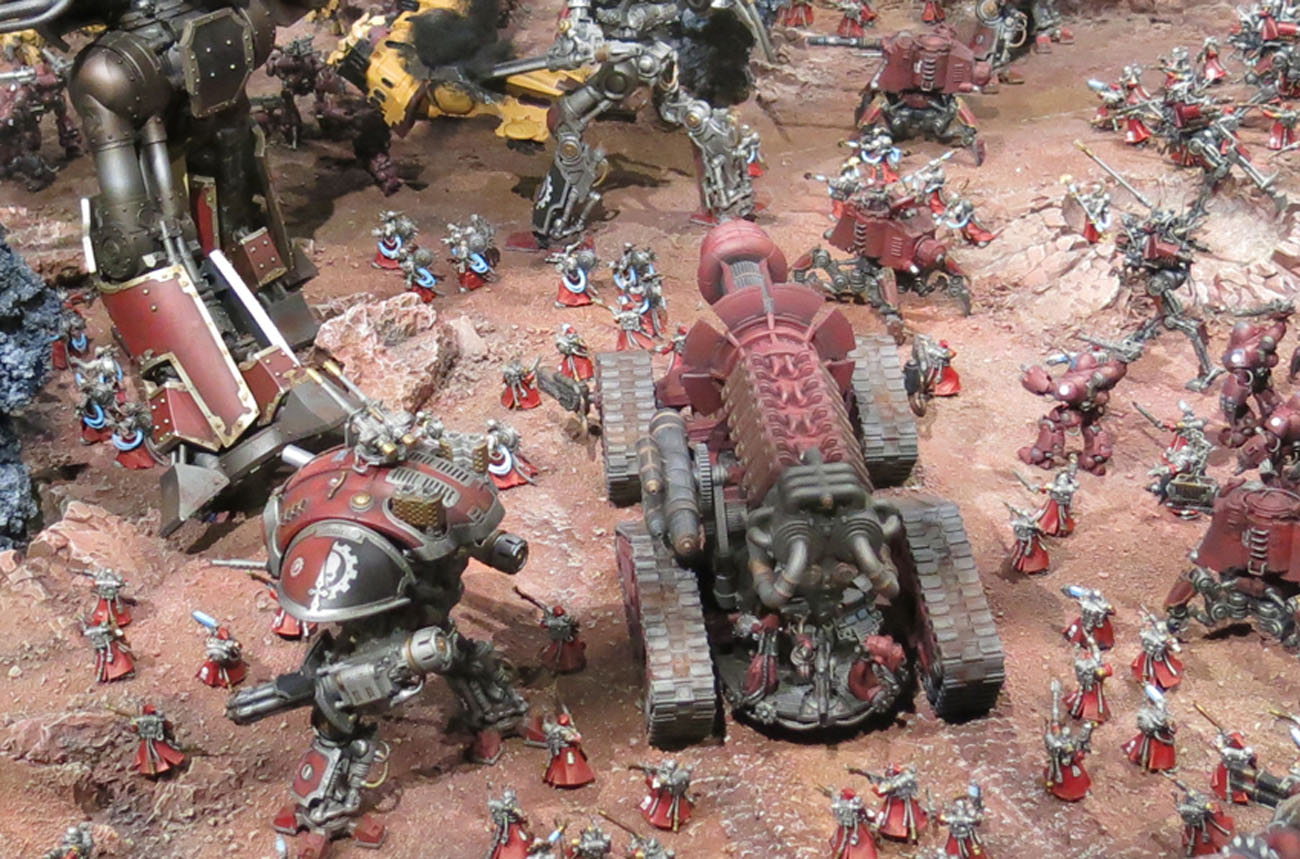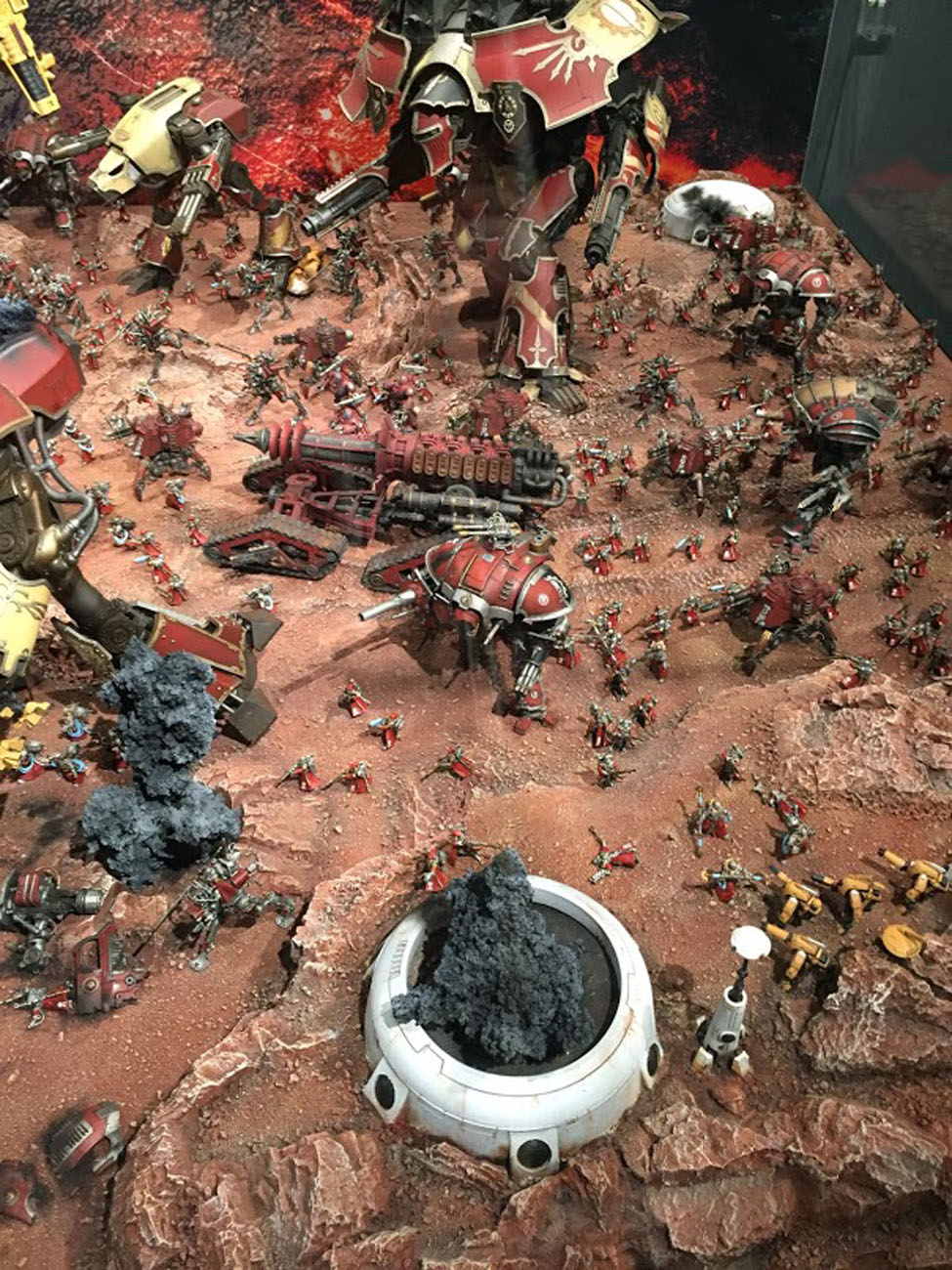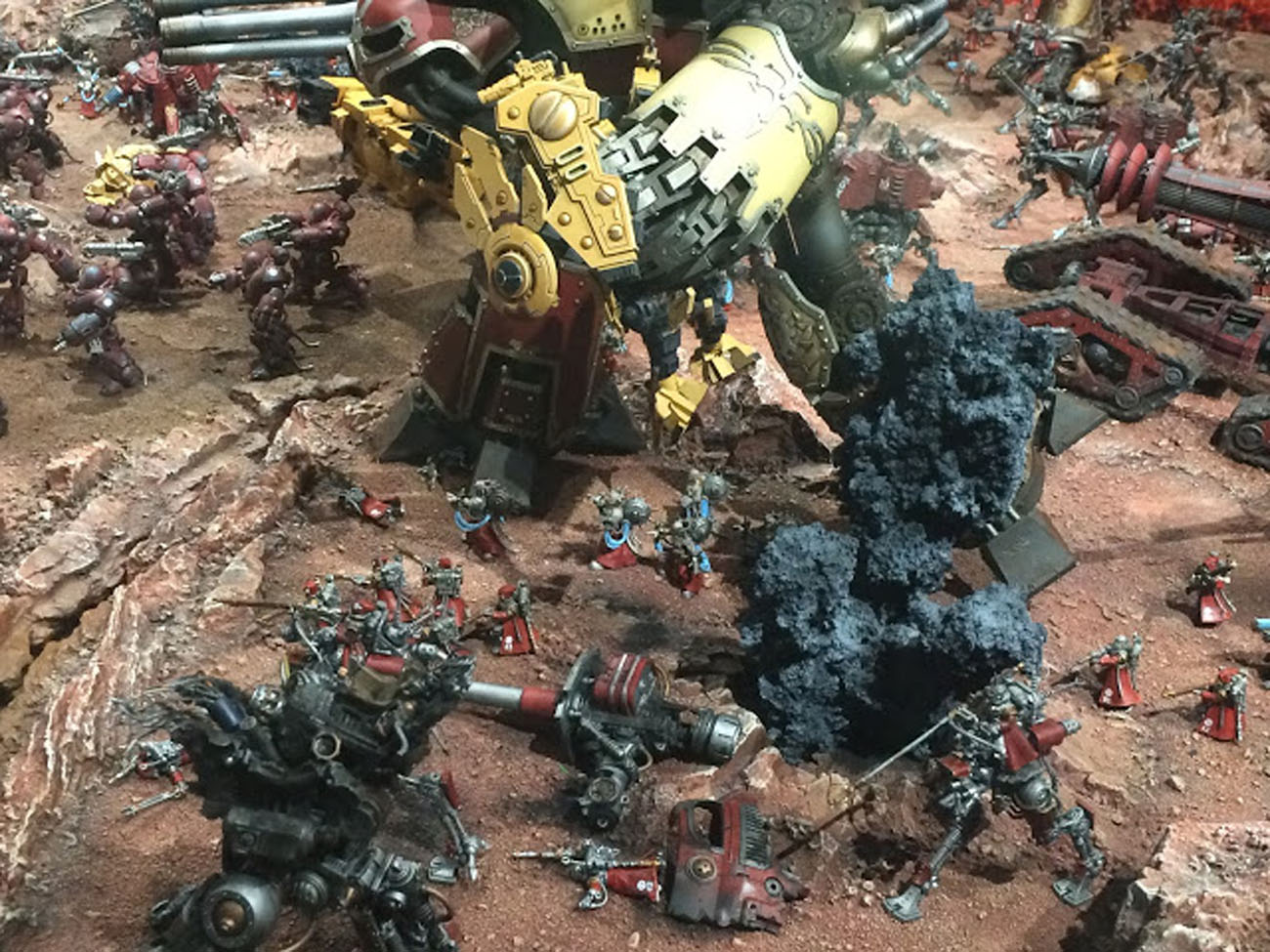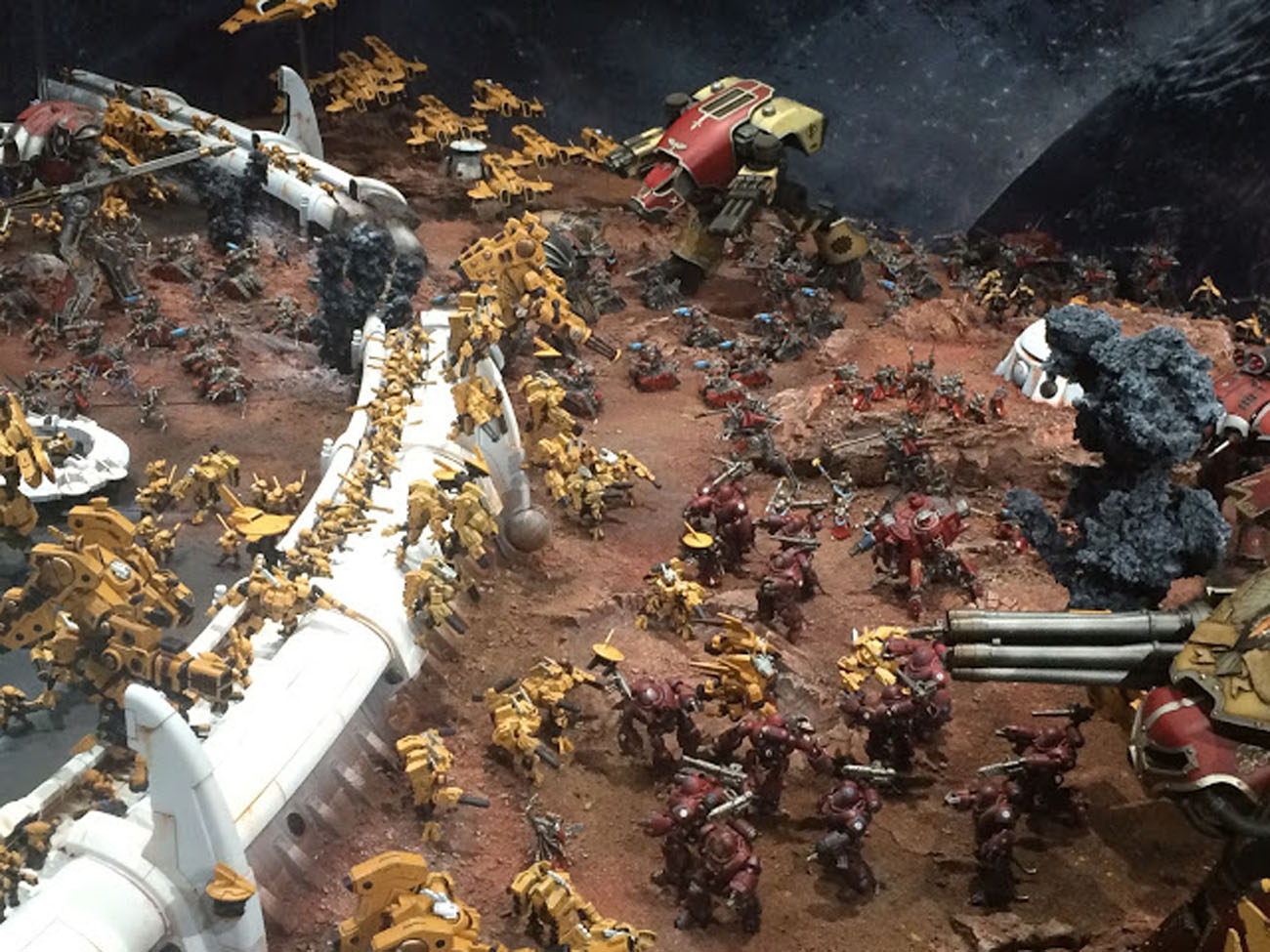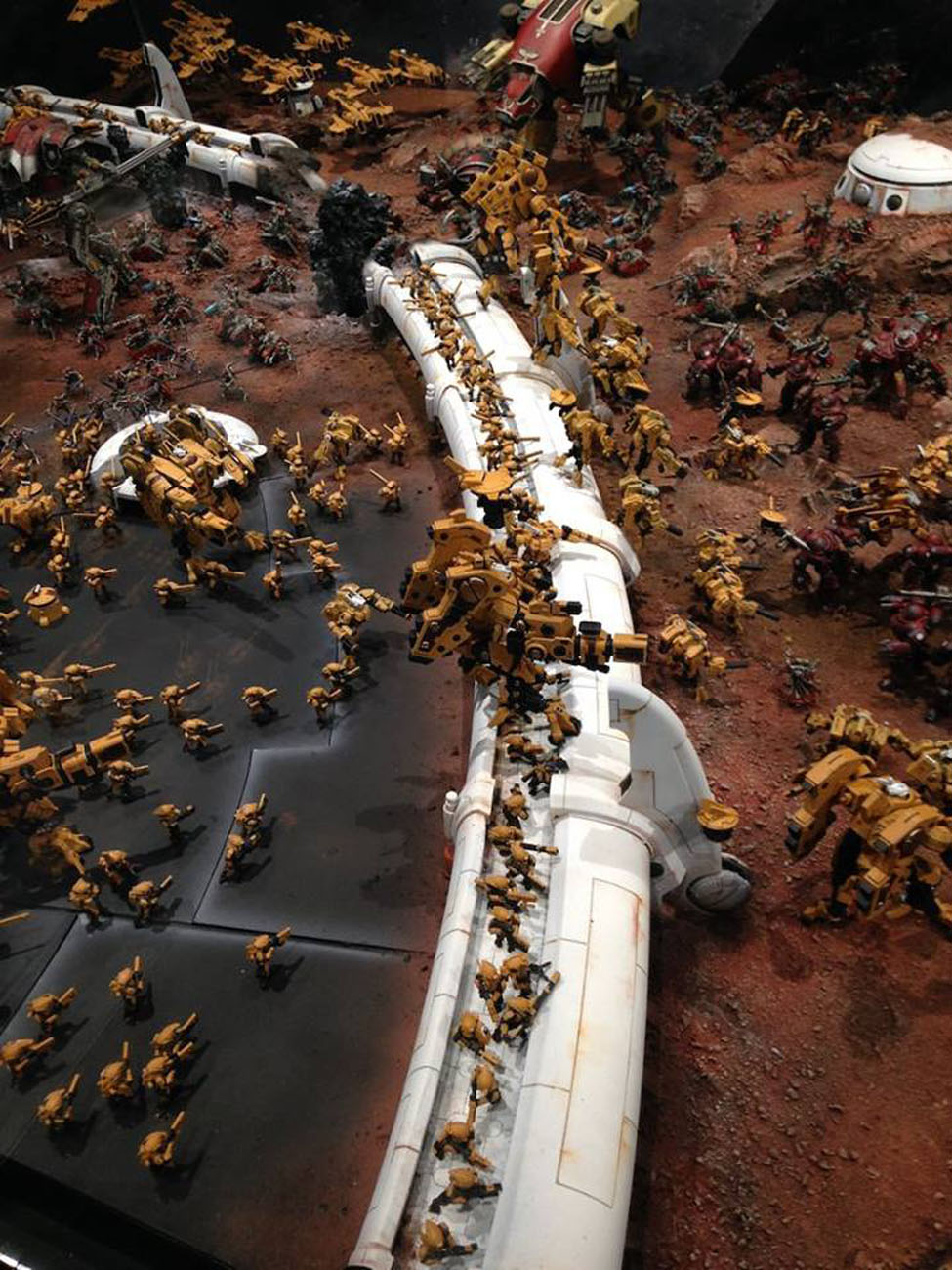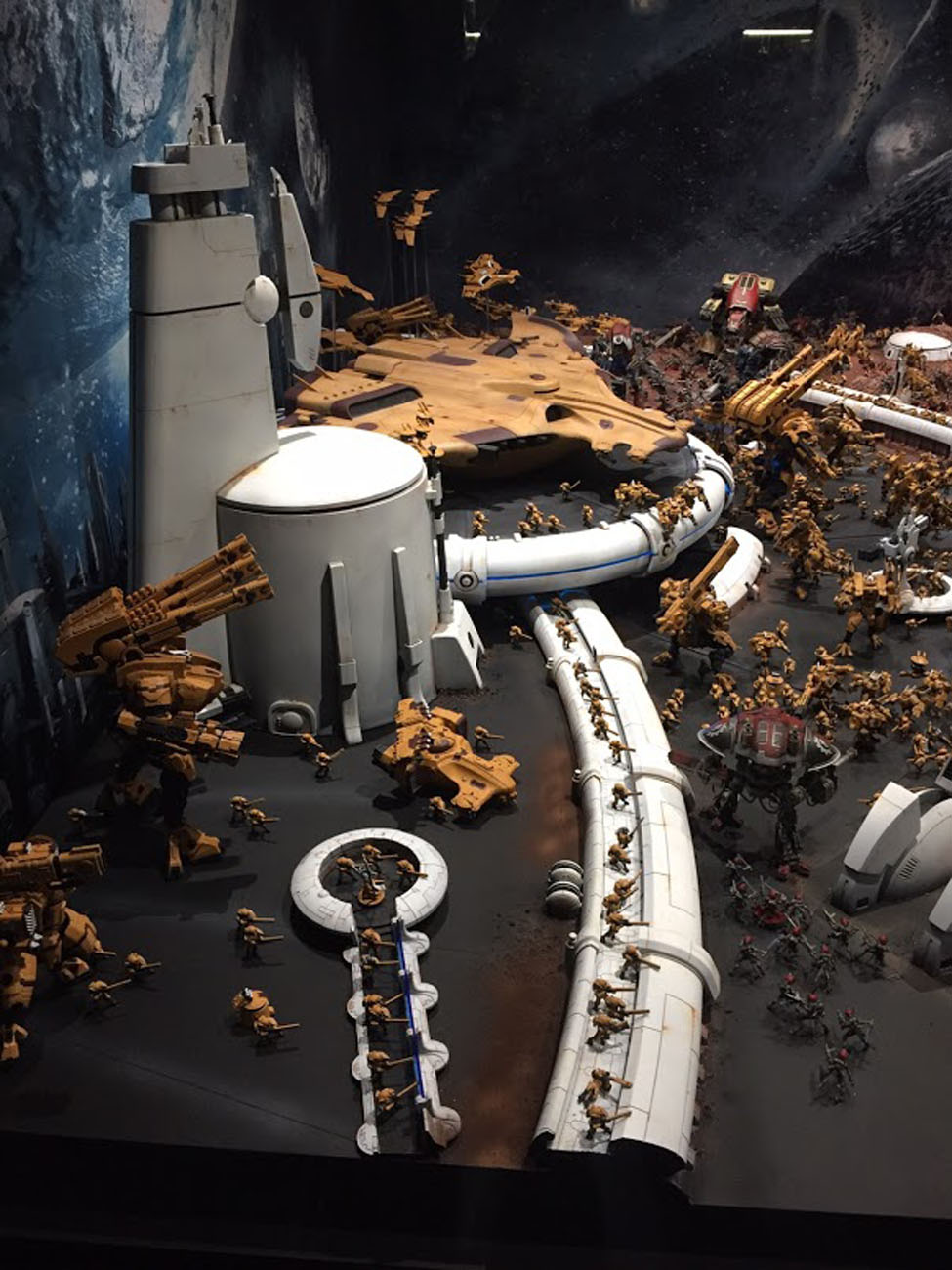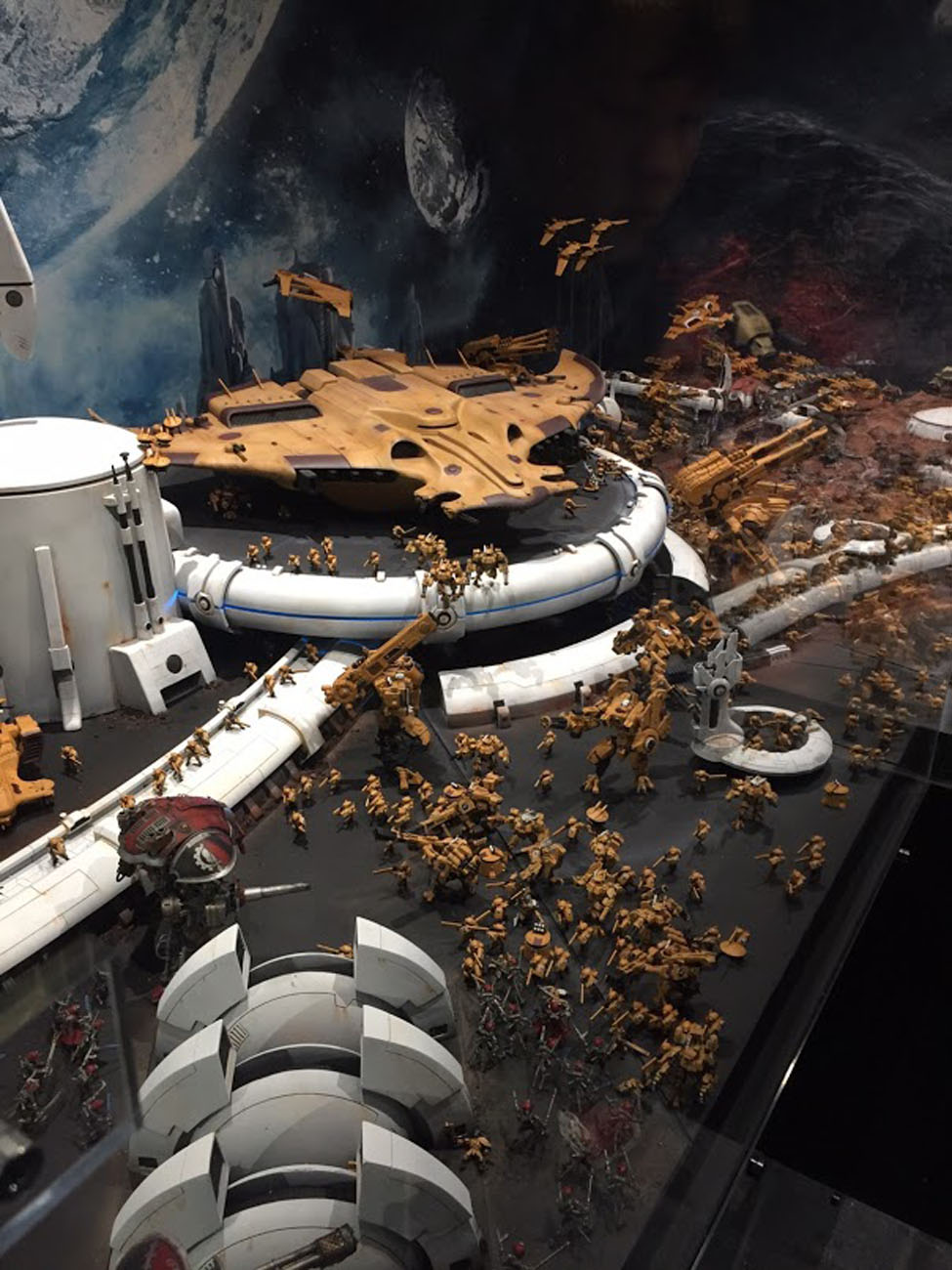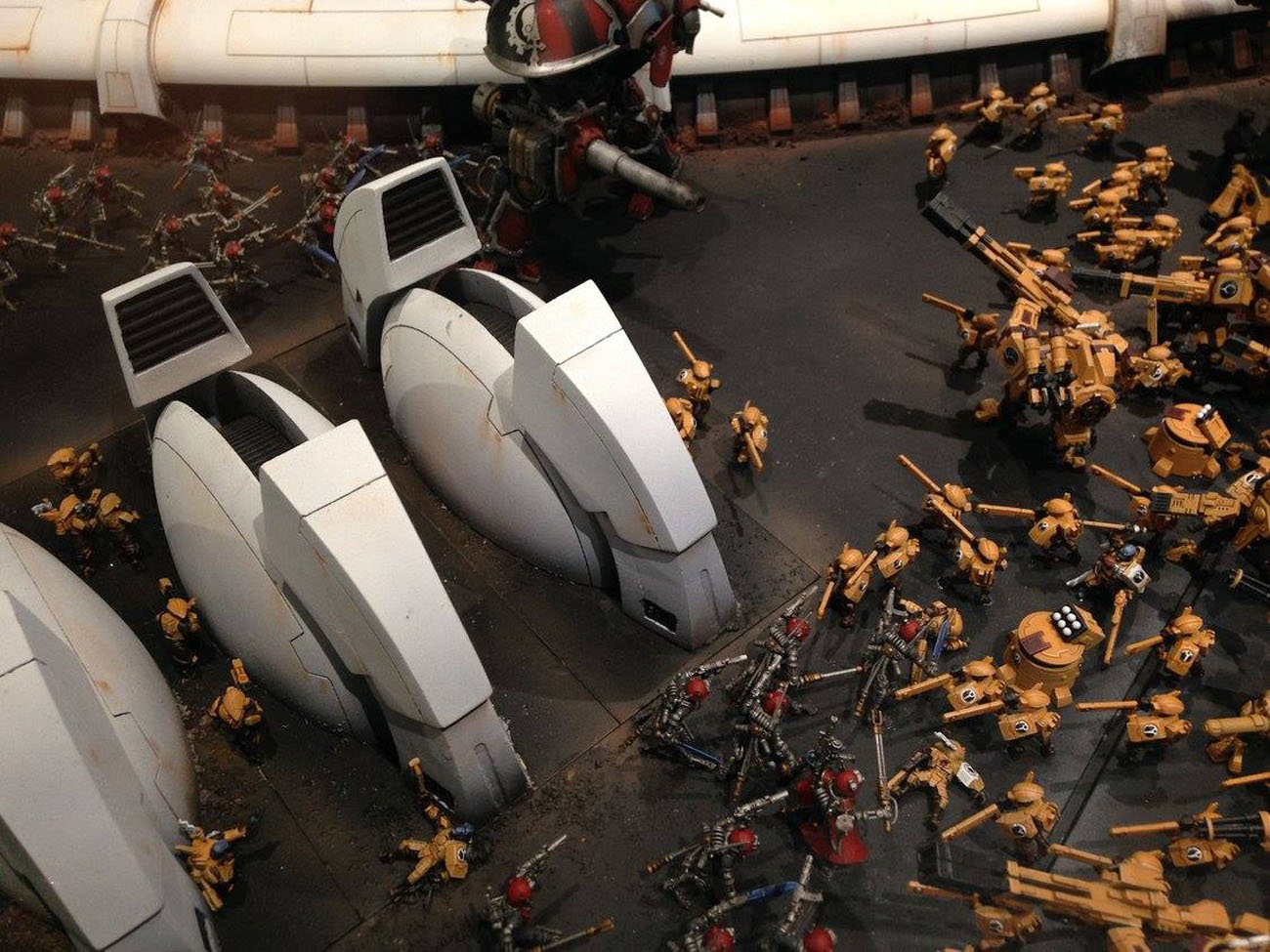New Forge World Weekender is over. They've shown a lot of new awesome miniatures and rules. Events like this are popular also because you can get a load of some outstanding dioramas. we've searched the Internet and brought you this epic Tau VS. Adeptus Mechanicus battle from one of the latest Games Workshop events.
The Mechanicus acknowledge the Emperor of Mankind as the ruler of the Imperium of Man, but not the religious truth of the Imperial Cult or the Ecclesiarchy. Instead, the Mechanicus follows its own dark and mysterious scriptures and worships the deity they call the Machine God or the "Omnissiah." The Adeptus Mechanicus believes knowledge is the true manifestation of divinity in the universe and all creatures and artefacts that embody knowledge are holy because of it. The Emperor is the supreme object of worship for Mankind, the living embodiment of the Machine God or Omnissiah, because he comprehends so much, understanding more about the true nature of reality than any other being in existence. The Adeptus Mechanicus also regard organic flesh as weak and view the removal and replacement of biological tissue with mechanical, bionic parts as sacred. Most elder Tech-priests have few organic parts left and eventually become more machine than man.
The Adeptus Mechanicus is vitally important to humanity because of the Imperium, despite its technologically advanced state, has a very limited scientific knowledge of how its technology actually functions. This has only reinforced the prevailing Imperial view that the building and use of advanced machinery are almost a magical or religious act, fraught with ritual and inviolable instructions. The Adeptus Mechanicus, with its inherent understanding of the Machine Spirit and the Machine God, has a near-monopoly on Standard Template Construct (STC) designs and other advanced Imperial technological knowledge. As a result, the Mechanicus wields a tremendous amount of power in the Imperium as the primary manufacturer, maintainer and repairer of everything from basic farming equipment to interstellar warships.
During the Dark Age of Technology, the two empires of Terra and Mars co-existed under the aegis of the decentralised human interstellar government of that era, to the mutual benefit of both. At the height of its splendour during that era, and even later in the anarchic Age of Strife, Mars despatched hundreds of colony fleets into the void. Many perished in the terrible Warp Storms that engulfed the galaxy at that time before the birth of the Chaos God Slaanesh, but others survived or made their way forward at sublight speeds in realspace. Those who did found new Forge Worlds in the name of the Machine God and built on them a likeness of the great manufactorums and temples of their distant homeworld. These Forge Worlds also forged new empires for the Mechanicus among the feudal Knight Worlds and added their unique combat walkers, the Knights, to the Mechanicus' own powerful arsenal.
During the Horus Heresy, many Mechanicum units declared for the Warmaster Horus and fought against those of their faith who remained loyal to the Emperor, becoming known in later times as the Dark Mechanicus. These Traitor Mechanicus units initiated a civil war on the Red Planet known as the Schism of Mars that mirrored the larger conflict raging across the galaxy. The Fabricator-General himself sided with the Warmaster, but his deputy, the Fabricator Locum Kane, remained loyal to the Emperor. Horus swayed the Fabricator-General of the time, Kelbor-Hal, to the side of Chaos by promising him a complete STC database from the planet of Drakonis-Three-Eleven and brought the senior Tech-adept in his 63rd Expeditionary Fleet named Regulus over to his side with other STCs recovered from the Imperial conquest of the Auretian Technocracy. Horus promised much else in terms of technological knowledge to the Mechanicum, including the right to develop technologies like artificial intelligence previously forbidden by the Emperor in the Treaty of Mars in return for their allegiance to his cause. Many Master Adepts like Kelbor-Hal longed to pursue these restricted lines of research and had long believed that the Emperor was not the Omnissiah of the Machine God, for the true Machine God dwelled in the Noctis Labyrinthus deep below the crust of Mars. That this legendary creature may actually have been the C'tan shard known as the Void Dragon is a disturbing possibility.
The ultimate goal of the Cult Mechanicus is to understand and fully comprehend the glory of the Omnissiah. The communal and personal attempt at this form of enlightenment is known as the Quest for Knowledge. The Cult believes that all knowledge already exists in the universe, and it is primarily a matter of time before it can be gathered together to complete the Quest. The Cult is, therefore, disinclined to perform most basic scientific research and development. Despite this, some original scientific research does continue on Mars and the other Forge Worlds of the Imperium, enough to keep Imperial technology advancing steadily, if extremely slowly. The faith of the Cult is defined by a series of sixteen precepts, known as the Sixteen Universal Laws, which have been divided into two sets of eight precepts known collectively as the Mysteries and the Warnings.
